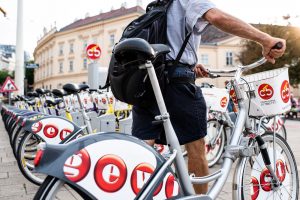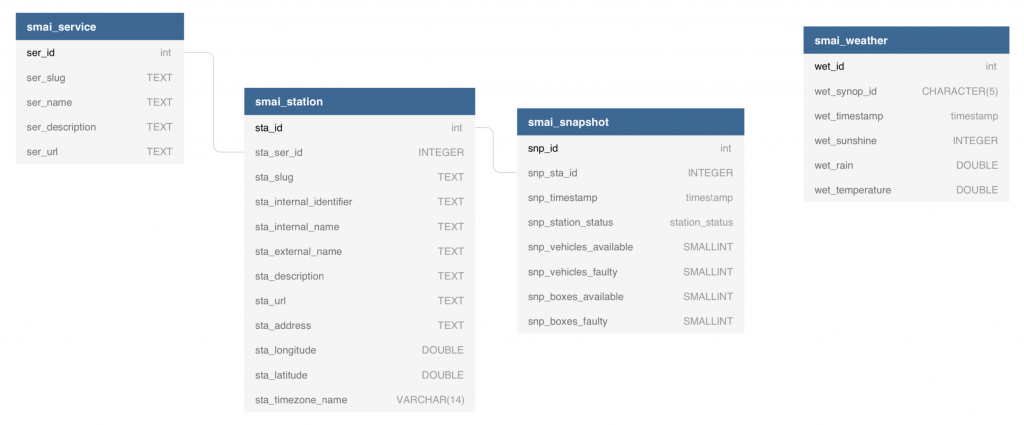
SharedMobility.ai provides capacity predictions for the Vienna Citybike bike-sharing service. Citybike Vienna is a station-based shared mobility service with fixed mobility points. Enhancing the rental experience with predictable lendings and returns avoids customer frustration and improves the rental frequency in the long term. Our project received a funding by Austria’s largest open source program Netidee in 2018.
The TensorFlow framework is used to generate the models for every prediction. Input data for the learning phase comes from various sources and all are available under a permissive license. Citybik.es is used to get snapshots of all Citybike Vienna stations in a regular interval. It provides the current free bikes and empty boxes for each station of the network. More than 400 cities are already integrated into the free Citybik.es API.
Soon we noticed that the overall rentals are highly influenced by the local weather conditions. ZAMG, the national meteorological service of Austria, provides a low number of stations under a Creative Commons license. The 21 available stations are only sufficient to get a broad overview, but not enough for fine-tunes models. SharedMobility.ai has been lucky to only provide predictions for Vienna, where two weather stations are included in the ZAMG dataset.
Matters were complicated further by the missing history of ZAMG’s open data stations. The official CSV only includes live data for the last hour, but not any historical data points. Fortunately someone saw this problem and created a scraper for the ZAMG data: AT-Wetter.tk imports the hourly snapshots into a structured database. The database is available for free under Creative Commons and we could extract all required meteorological data points for the past. We import the weather data into our own database table „smai_weather“ and merge it together into our freely available TensorFlow datasets.

To be clear: Without the voluntary work of the creator of AT-Wetter.tk our TensorFlow models would be extremely distorted! Having a history of weather conditions made our model by far more accurate. This is obvious since bike rentals drop sharp if it starts to rain or if it’s a cold day. Thanks to a happy coincidence we could use AT-Wetter.tk as data import and improve our models to a reasonable level.
We hope to get this long-ranged data directly from ZAMG and not from a third party. Not only our models are producing far more accurate predictions thanks to precise historical weather data: All AI and machine learning applications around urban mobility will profit from open meteorological data.